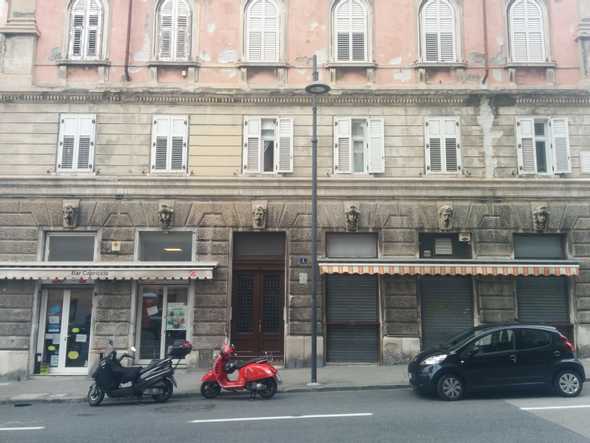Why don't Italians window-shop?
Why do Italian shop owners hide their businesses when they're closed?
2 min readItalian shops have a way of making you wonder if you’re going mad. They’re like Cheshire cats, you see: one moment that eco-grocer is there; two hours later it’s not. You’ll walk down a particular street every day for a week, then find yourself scratching your head on Day Eight and saying, ‘I could have sworn there wasn’t a bar dedicated to James Joyce here before!’
The good news is that you haven’t lost your marbles. The problem is...shutters.
In most parts of the world, shopkeepers want passers-by to see their window display, note the sign above their door and generally know that they exist. Look, I don’t have an MBA, but surely this is a no-brainer? Even when the shop is closed and the owners are getting some shut-eye, that storefront continues to work for you. Shift workers scurrying about late at night can at least learn of your presence and plan a visit during working hours. It doesn’t cost you a dime, so why decline this chance to advertise?
Well, the Italians do. At least if my recent trip to Trieste is anything to go by.
Every time a business owner in that northern port city leaves their shop, nail salon, cafe-bar or whatever it might be, they slam down a hefty, corrugated sheet of metal that turns their storefront into what now looks like abandoned premises. It’s not just the window display that gets the treatment: everything is swallowed up, including all signage and information regarding opening hours.
It’s a very odd habit. Apart from security - and are Italians really champing harder at the bit to smash windows and grab wares than people in other, shutter-free societies? - I can’t particularly see the upside for the businessperson. For the tourist, on the other hand, it can make getting to know a neighbourhood that little bit more interesting. Like spotting birds, if that’s your thing.
Because you have to remember that Italy, like many Mediterranean countries, likes to shake things up when it comes to opening times. Random weekday afternoons and mornings can easily be shuttered-up territory. A beautician may open for three hours on a Friday evening; a certain bar may only do Wednesdays and Saturdays. So there’s no such thing as a day or time when you can walk down a street and get a full overview of all the goods and services on offer. Like the avid birder, you must keep trailing up and down, hoping to tick off a rare laundromat sighting.
So it’s kind of fun, after several days in a place, to suddenly learn that there’s been a bakery around the corner from your apartment all along. You didn’t have to mission three kilometres down the road after all - if only you’d guessed when it might spring into life! I suppose this could be grounds for grumpiness, come to think of it. But on the other hand, it makes you feel integrated and local to know these secrets.
Still, if you’re in a hurry to find your nearest carpet seller in an Italian city, then Google really is your friend. But I’d still like to know how and why, in a land renowned for style, taste and being generally relaxed about life, shopkeepers insist on hiding their life’s work from potential customers - and doing so with brutalist, forbidding architectural features.
